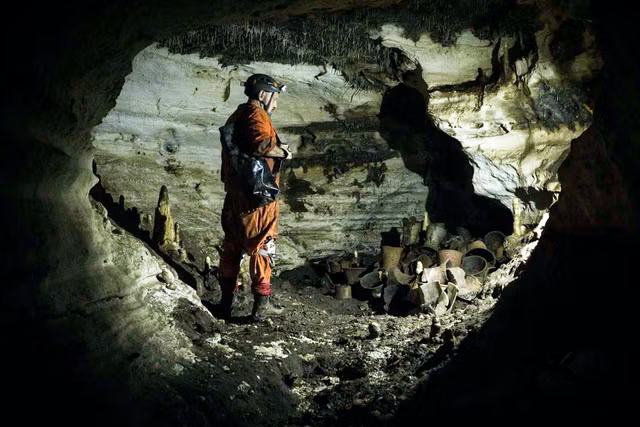Scientists have made a breakthrough in our understanding of how memories form in the brain and how this process may be disrupted by not getting enough sleep.
The findings offer exciting insights into how our brains work and may lead to new targeted treatments to improve memory formation in the future.
Getting enough sleep is essential for our mental and physical well-being. It helps us consolidate our memories and aids physical recovery, and not getting enough has been shown to contribute to heart disease, obesity, neurodegenerative disorders and depression.
Now, new research suggests that not getting enough sleep might permanently disrupt the formation and retrieval of waking memories.
The neurons that make up the "wires" in our brains rarely act alone. Instead, they are highly interconnected and often fire together in rhythmic and repetitive patterns. One example of this rhythmic firing is known as the sharp-wave ripple, which is sort of like a "stadium wave" in your brain.
Previous research has shown that sharp-wave ripples in an area of the brain called the hippocampus play an important role in memory retrieval and consolidation. However, the impact of sleep deprivation on these brain patterns is less well understood.
In a new study, published in the journal Nature, researchers from the University of Michigan Medical School recorded brain activity in the hippocampus of seven rats as they explored mazes over the course of several weeks. Some animals were regularly disturbed during sleep while others were allowed to sleep freely.
Both groups of mice showed similar levels of sharp-wave ripple activity. In fact, they were actually slightly higher among the group of sleep-deprived rodents. But the firing of these ripples in the sleep-deprived group was weaker and less organized than the patterns observed in the brains of the well-rested rats.
The sleep-deprived rats were then given two days to recover and demonstrated improvements in strength and organization of the sharp-wave ripple activity. However, they were unable to reach the same levels of activity as the rats with normal sleep schedules. In other words, sleep deprivation permanently altered the rats' ability to process specific memories.
"The memories that are formed prior to sleep deprivation will not undergo the same memory processing as those before sleep," lead author Kamran Diba, told Newsweek. "Other studies from ours have previously shown that such memories won't be remembered in the same way."
This study adds to a growing body of evidence that memories continue to be processed after they are experienced, and that sleep appears to play a really important role in this processing. So pulling an all-nighter to revise before a big exam might not be a very effective strategy.
Not only does this research highlight the importance of sleep in memory formation, but the team hopes that their findings may inform future strategies to stave off memory decline.
"One possibility is that if we can identify interventions that confer resilience to reactivation and replay (i.e. allow them to fully rebound during the eventual recovery sleep after sleep loss) then we may be able to circumvent memory decline, at least in the short term," Diba said.
This mechanism may also go some way to explain the associations we see between sleep deprivation and cognitive decline. "While we did not investigate the case of chronic sleep deprivation, diminished reactivation and replay indeed represent a potential mechanism for cognitive decline, though I think there will likely be other links in the chain (such as protein signaling and gene expression)," Diba said.
Is there a health issue that's worrying you? Let us know via health@newsweek.com. We can ask experts for advice, and your story could be featured on Newsweek.
Disclaimer: The copyright of this article belongs to the original author. Reposting this article is solely for the purpose of information dissemination and does not constitute any investment advice. If there is any infringement, please contact us immediately. We will make corrections or deletions as necessary. Thank you.



